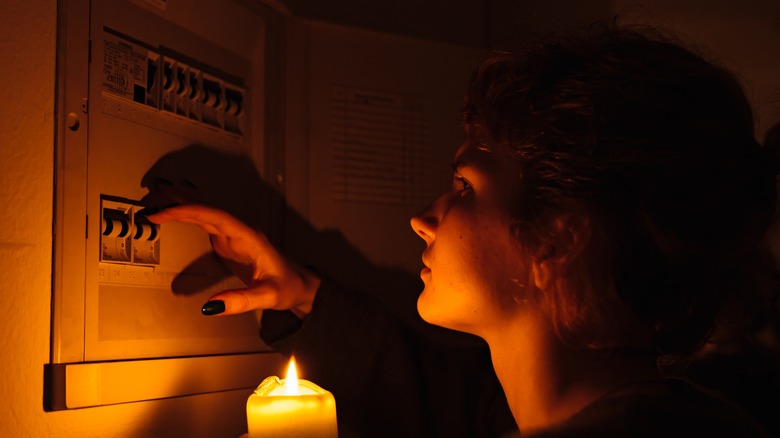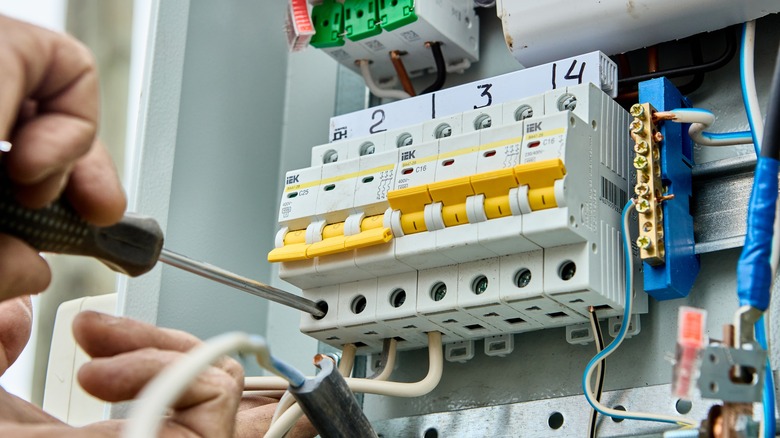What It Means When Your Fuse Box Is Chirping
If you hear a chirping sound from your fuse box, it isn't going to be one of our feathered friends trapped in there, and it's unlikely to be an insect either. It is almost certainly some kind of electrical fault, and it needs to be identified and rectified as quickly as possible. If you ignore it, there's not just the risk of the lights going out or the food in the freezer thawing; it could also be a serious fire hazard.
The terms fuse box, breaker box, and consumer units can be confusing. They are effectively the same thing, but homeowners will benefit from learning about breaker boxes to help identify potential problems quickly. For example, although the normal running of devices in the home means a fuse box might not always be silent, a consistent chirping or loud buzzing is a cause for concern.
The problem may be something as simple as a loose wire. It could be a faulty or damaged circuit breaker. It's also possible that someone has overloaded the breaker box in an attempt to squeeze more circuits into an outdated unit. Each of these is potentially dangerous because of the risk of sparks or overheating that could start a fire.
Can you fix a chirping fuse box yourself?
If you can see that a breaker has tripped, and resetting it cures the chirping or buzzing, that's great. In all other cases, you should call a qualified electrical contractor. Touching the wrong parts of a fuse box or breaker box can result in a severe electrical shock that could prove fatal.
Calling a professional is especially important with older fuse boxes, so let's clarify the difference between those and modern breaker boxes. A fuse box contains individual fuses (small glass or ceramic tubes with metal ends) that burn out when overloaded and need to be replaced. A breaker box has trip switches that usually just need to be reset. Both tasks are straightforward, though the latter is as easy as switching a light switch.
However, fuse boxes haven't been installed in new homes in the U.S. since the 1960s. They probably won't handle the electricity demanded by most homeowners, and, given their age, they may have become dangerous. If you are considering buying a property that has an old-fashioned fuse box, you should make investigating the cost of replacing your circuit breaker box a priority. This is primarily for the safety of you and your family, but also because many insurance companies will not provide cover for homes with this type of electrical panel.

